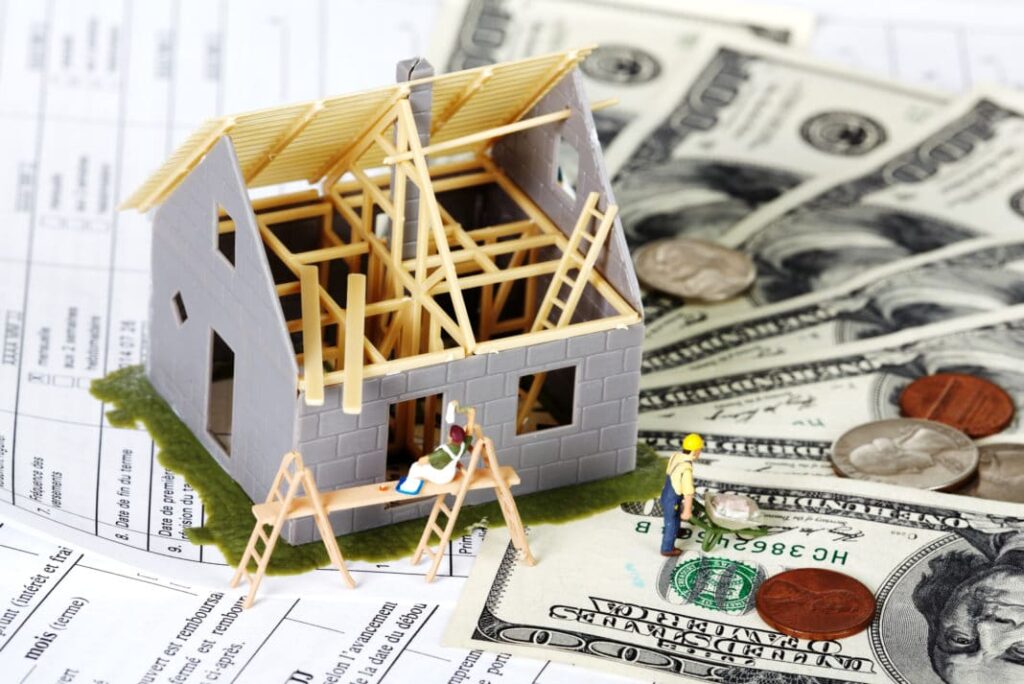Home renovations increase a home’s value but require an upfront investment, sometimes as much as $100,000. If you don’t have that kind of cash lying around, you need financing. Among your options, you’ll find hard money loans used to renovate a home.
Is a hard money loan worth it?
Let’s look at how it works.
How Do Hard Money Loans Work?
Hard money loans are funds from a private institution and are a great financing option. Instead of focusing on the borrower, hard money lenders focus on the property itself. If you’re renovating a property and making renovations that improve its value, you’re in a good position.
Because the focus is on the property, hard money lenders fund loans in as little as one week. It usually takes just minutes to get approved and before you know it, you’ll have the funds to renovate your property. Hard money loans have shorter terms than traditional loans, which means you’ll pay it off and earn equity faster.
What Do Hard Money Lenders Look For?
Hard money lenders set their own terms. Most emphasize the property as that’s the collateral. If you default on your loan, the lender can foreclose on your property.
Lenders make sure the home is worth enough – especially after renovations if you’re buying a fix and flip. If the home is worth at least as much as you bid, they’ll typically loan you 85 percent or less of the home’s value. You make up the difference in cash.
Most lenders also ensure you can afford the loan. They’ll check income and assets, but not to the same degree that standard banks and mortgage lenders do. A hard money loan is a shorter-term loan, giving hard money lenders the leg up because they don’t have to undergo such rigorous underwriting.

Do Hard Money Loans Require An Appraisal?
The appraisal is the most important part of the hard money loan process. If the home isn’t worth enough now or after renovations, the hard money lender is under a tremendous amount of risk.
Hard money lenders turn to professional appraisers to tell them the value of the home. If the value is there and you have the required down payment, you’re well on your way to a hard money loan to renovate your home or a home to fix and flip.
When Hard Money Loans To Renovate Make Sense
Hard money loans have shorter terms, but higher interest rates. Many people think they don’t make sense, but they help in many situations including:

- Fix and flip – Buying a home at a lower price than it’s worth, fixing it up, and selling it usually happens within a few months. Why go through the hassle of traditional loan underwriting only to pay the loan off in full in a few months? Hard money loans give you the funds fast, allowing you to earn profits faster.
- You don’t qualify for a mortgage – Low credit scores and high debt ratios make many people ineligible for traditional mortgage loans. Many lenders have such strict requirements for home renovations, especially on investment properties that it’s impossible to qualify. Hard money loans to renovate or fix and flip a home focus on the property, not the borrower, making it easier and faster to get approved.
- The renovations make up for the cost – Hard money loans may seem ‘more expensive’ but if you work the total into your expenses, you can price the house accordingly. For example, if a hard money loan costs $4,000 in interest over a few months, but you’ll sell the home quickly, deduct the $4,000 from the intended sales price along with the costs to fix up the home. If there are still profits, a hard money loan makes sense.
Should You Choose A Hard Money Loan To Renovate?
Every borrower has different scenarios. Look at the big picture, aka the total cost of the loan including the hard money loan to renovate costs. If it works into your profits (whether keeping or selling the home), then the hard money loan makes sense.






